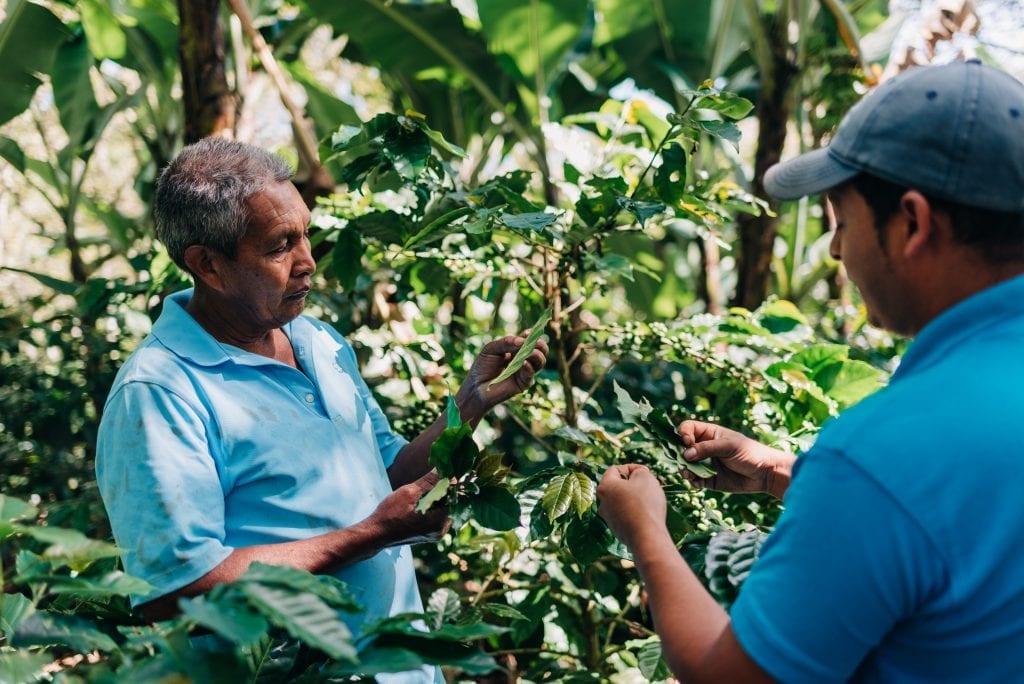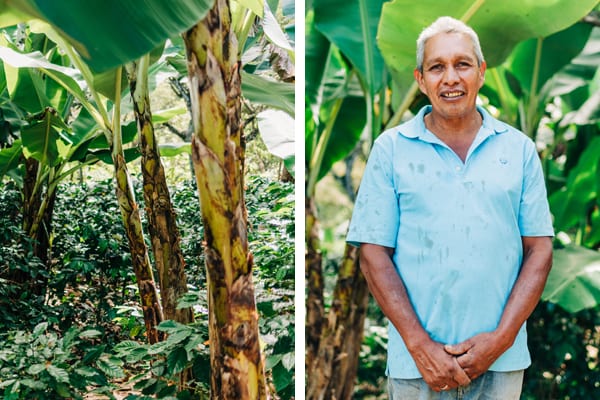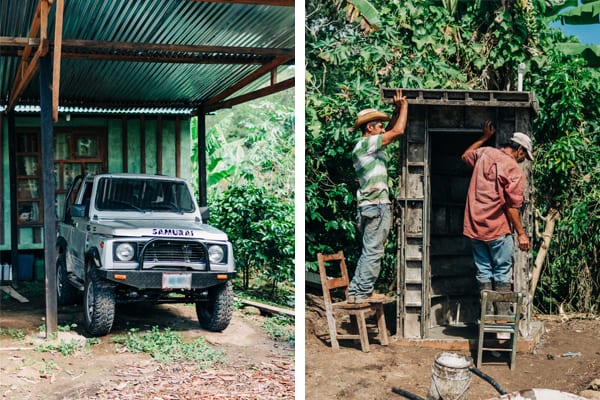In Honduras, Opportunity Grows on Coffee Trees
Honduran coffee farmers like Rito Girón Hernández are improving their farm productivity and increasing their incomes through the PROLEMPA program.

Seven years ago, Rito Girón Hernández’s daughter moved to Spain – leaving behind her family’s small coffee farm, nestled high in the mountains of western Honduras, in search of a better life. She never returned.
At the time, Rito was struggling to contain an outbreak of coffee leaf rust – known as “la roya” in Spanish – that had decimated his already meager coffee crop. The plant disease dramatically reduced his yields, and what little coffee he did produce, he sold to an intermediary for low prices. “After my farm was affected by coffee leaf rust, we had to switch to a different coffee variety,” Rito recalls. In an area where coffee represents the main source of income for many people, even one bad coffee crop can have devastating consequences.
Rito lives in Las Aradas, a small community in the Intibucá department of western Honduras. Intibucá is known for its cool temperatures and mountainous terrain – two characteristics that are conducive to growing high quality coffee. Yet despite the optimal geography, coffee farmers here were struggling. The money Rito was earning from producing coffee was not enough to support his family, and both his children ultimately moved away to find jobs off the farm.

In 2018, after many years of setbacks on his coffee farm, Rito learned about a program that would train coffee farmers like himself and decided to join. PROLEMPA is a partnership between Global Affairs Canada, CARE Canada, and TechnoServe that works to improve the economic well-being of 2,637 small-scale coffee farmers in the dry corridor of Honduras.
With the money I earned, I was able to change the roof to our house, build another little house, and even buy a car.
– Rito Girón Hernández
Rito attended the trainings diligently, where he learned important techniques such as pruning, regulating shade, proper fertilization, and pest management. “I used to only apply chemicals to my coffee plants,” he admits. “Through the training, I learned how to make organic fertilizer. I can tell the difference just from the color of the leaves.” The program includes a sustainability component that teaches coffee farmers how to purify wastewater using vetiver grass and how to implement agroforestry systems to reduce the impact of drought and soil erosion.
Since learning better techniques, Rito’s coffee yields have increased significantly. “I used to produce 500 kilograms on each plot of land,” Rito recalls. “Now I’m producing between 1,600 to 1,800 kilograms.” However, income from coffee production depends heavily on farmers’ ability to successfully process the coffee cherry after harvesting. Farmers who are able to sell dry parchment coffee typically earn more money than those who sell the unprocessed fruit or wet coffee parchment. Through the program, farmers in Las Aradas were able to purchase two solar dryers, which has allowed them to process their coffee cherries into dry parchment coffee, which fetches a higher market price.
Rito also began selling directly to COMSA, a cooperative that focuses on selling high quality, premium coffee on the specialty market. “With COMSA, I can actually see the money I earn,” Rito says, unable to hide a slight smile. “When I was selling to the middleman they would pay me almost a month later or pay me in six parts. COMSA pays me on the spot.”

Using the training and connections he gained from the program, Rito has transformed every aspect of his coffee farm. But he hasn’t done it alone. “My family helps me around the farm now,” Rito says. His wife works at the community medical clinic, but also helps with the coffee farm. His son, who is married with a son of his own now, works in a nearby town but visits the farm often. With the additional money Rito earns, he has been able to invest in other areas of his life. “I changed the roof to our house, managed to build another little house, and I even bought a car.”
When I was selling to the middleman they would pay me almost a month later or pay me in six parts. [Now I’m paid] on the spot.
– Rito Girón Hernández
Learn more about TechnoServe’s coffee work.




